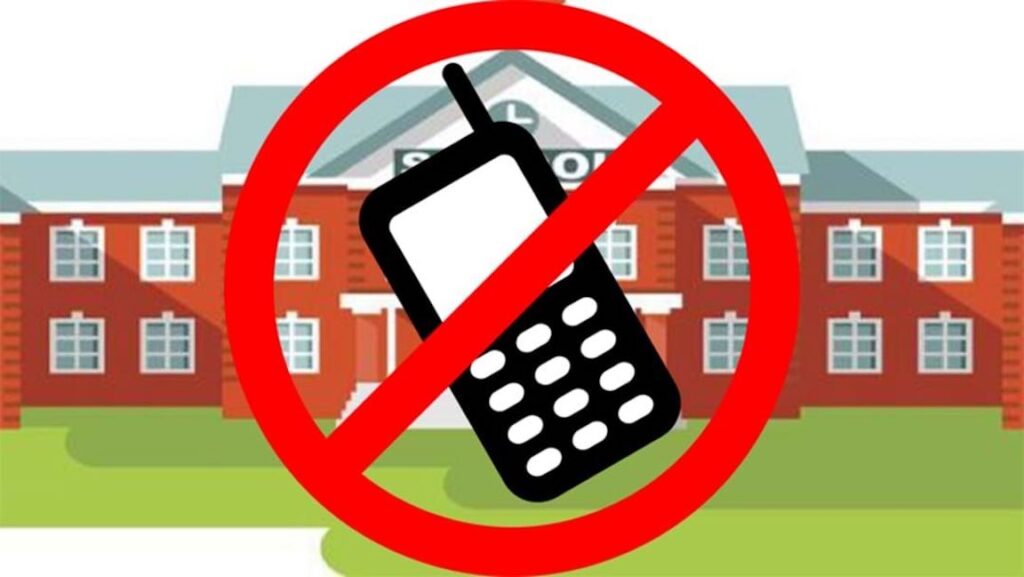Should Ferguson Consider Banning Cell Phones?
In September of the current year, the board of schools at Orange County passed a resolution that prohibited students from using their cell phones on school grounds at any moment in the facilities, including during breaks. This provision has been criticized by both parents and students, who cite that the policy takes away the possibility of pupils and caregivers reaching out to each other during the school day. From another outlook, teachers and administrators consider the ban favorable, as students seem to be more engaged during the school day and more focused on their tasks.
Everything began when the Orange board noticed an increase in cyberbullying, vandalism, and the exhibition of violence and harassment in their schools. According to Orlando Sentinel, they deemed it was needed to put in place a cell phone ban in order to address this issue effectively and promote a secure and focused learning environment.
Currently, the ban dictates that students must keep their cell phones completely off and within their book bags at all times. The restriction extends to break times too, including the commute between classes and lunch times.
Orange schools have been persistently monitoring the enforcement of the restriction. In an article authored by The New York Times reporter Natasha Singer, she informs that school authorities at Timber Creek High School are confiscating phones from students who get caught with hands on the glass mass. Upon collection, it is kept under lock and key at the main office until the conclusion of the school day, when students must form a lengthy line to fetch it back.
With phone bans becoming a more common occurrence, it raises the question: should Ferguson consider banning cell phones as well? How would such a ban be enforced in school? Intrigued by the consequences and benefits of enacting a rule like this sparked our curiosity for other students’ opinions.
“Banning cellphones in schools is not a good idea as it hinders communication between students to stay connected with their families and friends during emergencies.” Derek Hernandez, senior, comments. “However, cell phone use can be distracting and disruptive to the learning environment. Cutting off Wi-Fi access during school hours or reducing the network capabilities to only enable access to specific apps, such as the Hero app or Gradebook.”
Though banning phones will make communication difficult, many advocate that the implementation of a policy like this would benefit all parties involved, increasing students’ focus and attention towards their teachers.
Bryan Franquiz, senior, adds that excessive phone usage among kids leads to immaturity and a dangerous society. He suggests that a restriction like this one would result in “smarter, more social, and lively kids who would engage more actively in person.”
While students’ opinion was most likely biased since they would be the ones impacted by this hypothetical ban, teachers have voiced their opinions about the ban and its impact on students. From teachers who believe the ban would be incredibly beneficial to their instruction time, to those who believe it would profoundly impact the way students interact with each other – there is a varying spectrum of perspectives we have to consider.
Tabitha Sanabria, theater instructor, believes there would be balanced acclamation and judgment to this ban.
“Along with parents, school authorities should be able to meter a limited amount of phone usage.” Sanabria states.
Additionally, she is certain that students who need their phones for medical situations or other vital reasons should be allowed to have them with them.
Robert Perez, AP US World History Teacher, doubts the restriction would benefit students. He implies that deploying such a restriction would be difficult and impractical. He believes parents should decide whether their child should have a phone and teach fair usage on their devices. Moreover, he believes it may be “too late” to revoke cell phone usage at Ferguson.
However, various teachers have voiced mixed feelings of the ban, acknowledging that though the bill cultivates an attentive setting, that it will also bring negative change.
Veterinary teacher Kathy Lazo believes that the cellphone prohibition could improve student engagement and reduce distractions in the classroom. However, she pointed out that the “cons outweigh the pros” as devices are becoming increasingly common in the classroom for instructional purposes.
“Students may not possess a laptop or tablet, meaning most of them rely on their phones to access class-critical services.” Lazo reasons.
Lazo believes that imposing this ban would unfairly disadvantage that segment of the Ferguson student body.
Similarly, Maria Hernandez, lead information technology teacher, believes the cell phone ban would have, to some extent, an emotional impact on students both positively and negatively.
“Bring online brings risk as it could affect students’ self-esteem because of cyberbullying. If we ban cellphones, the vulnerability of students would reduce drastically if not disappear altogether when students don’t have access to their devices.” Hernandez observes. “On the other hand, she also exposed the other side of the coin as it would prevent easy access to communication between peers and parents.”
While it is hard to imagine a school experience where students are unable to use their cell phones, there are strong arguments from both sides. Students are glad that this restriction is solely hypothetical, while teachers remain hesitant about this questionable measure.
Currently, several firewalls embedded within school networks restrict access to social networks, dangerous, and questionable sites while connected to the institutional internet in Orange, Miami-Dade, and more school counties across the nation. Additionally, teachers are implementing their own policy against cell phone usage and working with the school administration to apply disciplinary measures in case of a breach.
You may be interested
Farewell From the 2024-25 Editor-in-Chief
Kat Torres - May 29, 2025Finding the words to express how I truly feel has been more difficult than I expected. How do you begin to say goodbye…

The Heart and Soul of Our School
Daniella Prieto - May 29, 2025At John A. Ferguson, some of the most meaningful work is happening quietly, all through structure, patience, and consistency. Inside the ASD (Autism…

Chick-fil-A vs. Raising Cane’s: A Clash of Chicken Titans
Kristen Almendral - May 27, 2025There have been debates recently over two fast food chains: Chick-fil-A and Raising Cane’s. Both chains are favorites among many. These fast-food chains…
Most from this category

Exciting Summer Getaway Destinations
Tehreem Chaudhry - May 22, 2025
The Chilly Challenge of the Ferguson Classroom
Leydi Morales - May 20, 2025
















